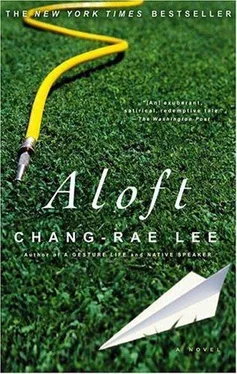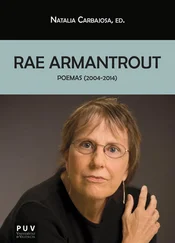The woman nods, tight-lipped, impressive with her high-domestic manner, an utterly neutral bearing that still leaves everything about you in doubt. Her accent is faintly Caribbean.
"Just a moment, sir. Your name, please?"
"Jerome Battle," I say, suddenly liking the way that sounds.
"You will wait in the foyer, please."
"No problem."
She regards me for an extra beat, as if she's telling me with her eyes that every wall hanging and knickknack in the room is now accounted for and catalogued, as are my height and hair and eye color. I fix/flash the ol' sparkle eyes, but no dice. The lady has a robot heart. She pads down the long hall in black orthopedic shoes and slides open a pair of pocket doors, glances at me once more, then disappears, closing the doors behind her.
I'm listening for voices, but I can't hear a thing, not a single thing, as if all the rooms are hermetically sealed off from one another. This is not quite the case in my drafty ranch house, where (when I wasn't living alone) you could hear every footfall on the creaky floorboards, every middle-of-the-night toilet flush and throat-clearing. Luxury means privacy, to people like Richie, even inside your own home. To a somewhat lesser degree it's the same deal at Jack's house, though there the new construction is in fact shamefully light-duty, so that you'd hear everything, too, if the place weren't so huge and many-winged.
Here in the Rabbit's lair, after I glimpse into the parlor on one side of the foyer, and the library on the other, it's instantly obvious that we're talking all custom material, even beyond the ultra-high-end stuff Jack wants to peddle, the kind of prime antique furnishing and ornamentation that you would never be able to put together if you weren't bred in the life, or didn't handsomely pay someone who purported that he or she did, which was clearly Richie's route. I know where he grew up, the Coniglios living in the same nice but not great Atomic Age Italian neighborhood of Queens as we did, in a brick shoebox house on a IA-acre lot, where the single garage door below the living room was barely wide enough to squeeze a fat-ass Buick inside.
Mr. Coniglio, like a lot of the dads, was some kind of mechanic or driver or municipal employee, a policeman or fireman or garbage man, a something-man with his name stitched on his workshirt or number stamped on a badge, a guy who didn't mind hitting you fungoes in the street after his shift in his tank undershirt, and afterward maybe letting the bunch of you split one of his fresh cold beers. Where he grew up, the smells drift-ing out from the houses weren't of sandalwood and myrrh, you were careful not to scuff the then-new Formica and Con-goleum, and high art was a deep-shag wall rug of sailboats or wild horses your mother and aunts had hand-knotted, or else posters of hilly seaside villages in Italy and Sicily, every one of them brittle in the corners and fading too fast. And yet knowing all of the above makes me feel a little more generously inclined toward Richie than I otherwise would, given his station and current intimacy with Rita (which is another detail that speaks well for him, not caring that she's a brown person), because no matter what, you have to hand it to a guy who never peeked or looked down on his way up to the top, who never paused or wondered or else settled too readily into any of life's intermit-tent drafts of friction-free gliding.
After what seems like barely a ten-count (as if she sprinted here on hearing my name), Rita appears in the doorway of the library, where I'm poking through dusty, moldering leather-bound volumes of late-nineteenth-century English maritime law, just the sort of deductible decorative element white-shoe attorneys love to impress visitors (and interlopers) with, having bought out some law library annex. Rita, on the other hand, looks absolutely fresh, phhhd, right out of the can, as she's dressed in tennis whites, a tiny little skirt and sleeveless top, porn-porn peds, and brand-new Reeboks, and my first thought-picture is how the skirt must flip up to reveal the frilly white underbrief against her smooth mocha thighs, and suddenly I'm more than a bit piqued.
"You don't play tennis," I say, sounding maybe too much like Pop, that aggrieved, aggressive combo of knowing nothing and knowing-it-all.
"What are you doing here, Jerry?" she says, not moving any closer. "I swear, you're losing it. You have to leave, right now Please leave now, Jerry."
"But you don't play tennis."
"Will you stop that? Anyway, I've started. I'm taking lessons."
"From Richie?"
"No. The pro at his club. Though Richard is a pretty good teacher. Listen, why do you care?"
"You never told me you were interested in tennis."
"I didn't know I was. I didn't know about a lot of things I might have enjoyed."
"You say that like it was my fault."
Rita shakes her head, her pinned-up hair making her look like a schoolgirl. I swear I would have fallen in love with her, at any age. Think of Jeanne Moreau, who looked good at every age, but with a darker complexion, a sweeter manner. She says,
"Let's leave it alone. And anyway, that's not the issue. The issue is, What are you doing here? I asked you not to come around here, remember?"
"I wanted to talk."
"You could have called me at home. He's having guests today."
"Champagne brunch and tennis."
"That's right."
"You know I'm thrilled that you're not saying e, we.
"This is Richard's house, not mine."
"And when you're married?"
"That's none of your business."
"He has you signing a prenuptial, right?"
"I'm not talking to you."
"I knew it. He's got it all spelled out, I bet. If you divorce or he dies, you don't get the house, or the cars, or the bearer bonds, or the Aspen ski lodge, or the bungalow in Boca. You just get whatever clothes or furs or jewelry he bought you, plus some parting gift, a check to cover six months' expenses."
"That would be a lot more than I got from you."
"Hey, you never asked. And I would have given you anything you wanted. Anything. I would have given you my house. My plane."
"What would I do with your plane, Jerry?"
"I'm just saying. Come on, Rita. Come back home with me.
I'll build you a tennis court in the backyard. There's plenty of room, where the pool was. I'll make it whatever surface you like, concrete, clay. I'll even do grass. It's a bitch to maintain but I can get the special mowers.."
"Will you please stop, Jerry? I just want you to leave, before Richard comes in and you embarrass me. I'm asking you nicely now but I swear if you don't listen to me I'll never talk to you again. Never, never, I swear. Are you hearing me?"
I am hearing her, hearing her good 'n' plenty, as my mother liked to be silly and sometimes say, but that doesn't seem to matter because I'm not moving in the direction she wants—
namely, out the door — and instead I'm still just standing here in this mahogany-paneled purgatory and jabbering what is clear pure reason to me but obviously sheer bankrupt babble to this woman I have loved perhaps wisely but not too well (or maybe not even that). Rita is glaring at me and crossing her arms in the way she does and I've long known, which might appear like plain pissed-offness but is really, if you could touch her, a steady boa-like self-constriction, the kind of anal-retentive stress response that you'd think would never afflict a beautiful fiery Latina; but in fact Rita is neither too fiery nor too much of a Latina, and never was, which is in no small measure why she and yours truly could have any history at all. The last gasp end of said history, I can finally see, has long commenced.
And that is when I tell her, out of body, and amazed with every word, "Theresa's in trouble."
Читать дальше











